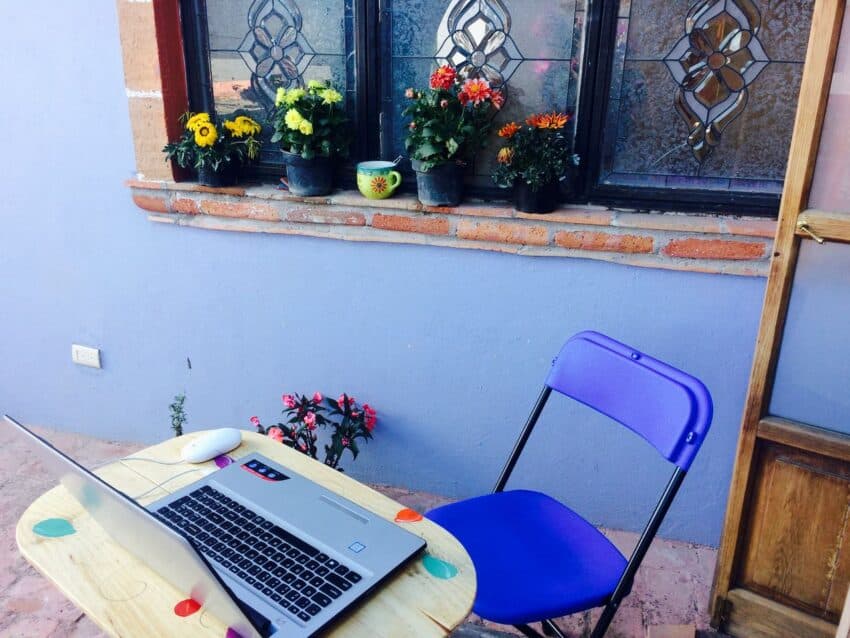1. Online bodydoubling. Involves working with either one other person or a group online. Each person shares their goals for the session, wishes others success, and then works on individual tasks with the mic off but (usually, but depends on platform) camera on for accountability. People who don’t know each other but have similar challenges meeting online to each work quietly on their respective difficult tasks is an actual thing out there, and it’s really effective. I’m not sure anyone completely understands why, but it improves focus even when you think you can’t focus. Membership prices range from free to pricey, and I have ordered the below sites by price for students. As free trial periods range from one week to one month, I would suggest to try them all and then go with what works best.
- Groove – coworking for freelancers pursuing various projects, in groups of 2-4 people. Free.
- CoFocus – one-to-one sessions with another member, fixed 50 min periods. Any time and day depending on availability of other members, but there are a lot of them. Accountability is higher because you have only one other member waiting for you. However, if someone cancels last minute, you may end up on your own during a work session, meaning predictability is lower. Members can elect preferences such as whether talk or chat online at start and end of session. Cameras are expected to be on. Free memberships allow you to book up to three sessions weekly, paid membership with unlimited sessions are $4.99/month or $49/year. No student discounts I could find.
- FocusMate – one-to-one sessions with another member, fixed 50 min periods. Accountability is higher because you have only one other member waiting for you. However, if someone cancels last minute, you may end up on your own during a work session, meaning predictability is lower. Up to three sessions a week included with a free membership. Paid memberships are $9.99/month or $84/year.
- Flown – groups with various lengths, themes and facilitators. Groups can be large and don’t run simultaneously, meaning each time slow has only one option. Normal price $25/month or $228/year, student discount is 50%.
- Deepwrk – group sessions with facilitators. All sessions one hour, no simultaneous sessions and limited sessions on weekends. No chat-only sessions. Normal price $19/month or $144/annually. No student discount I could find.
- Caveday – group sessions with a facilitator. Sessions have different lengths, with fewer sessions on weekends. No late arrivals, sessions lock after 10 mins. Different tiers from $9.99/month (three sessions a week), $35/month (unlimited sessions) to $366/months (includes private coaching for, well, I guess people who are not students). Student discounts available.
- Focus Sessions – 90-minute, silent group co-working sessions Monday to Friday, with limited sessions Friday and no sessions on the weekend. Starts at $47/month or $497/year, and costs double that if you want perks such as monthly planning workshops, coaching, and productivity challenges.
2. Mindmapping is an organizational tool that’s particularly useful for projects or tasks that seem too complicated. It helps break projects down into visual steps, link ideas, and understand what needs to get done. Works for anything from research projects to weekly or daily planning.
You can do the pen and paper approach, or for more flexibility there are the below online versions. I have not ordered these by price. Again, I would try whatever resource you can for free and then see if a paid one is worth it for you. If you can make FreeMind work, it’s no cost. My computer’s operating system didn’t like it but it sounded good.
Ayoya
Coggle
Freemind
LucidChart
MindMapping
Mindmeister
MindNode (Mac)
Miro
SimpleMind
Xmind
Some mindmapping tools include or can integrate with separate task managers, where you can tick off tasks you identified in a mindmap. For instance MindNode integrates with the task management tool Things.
